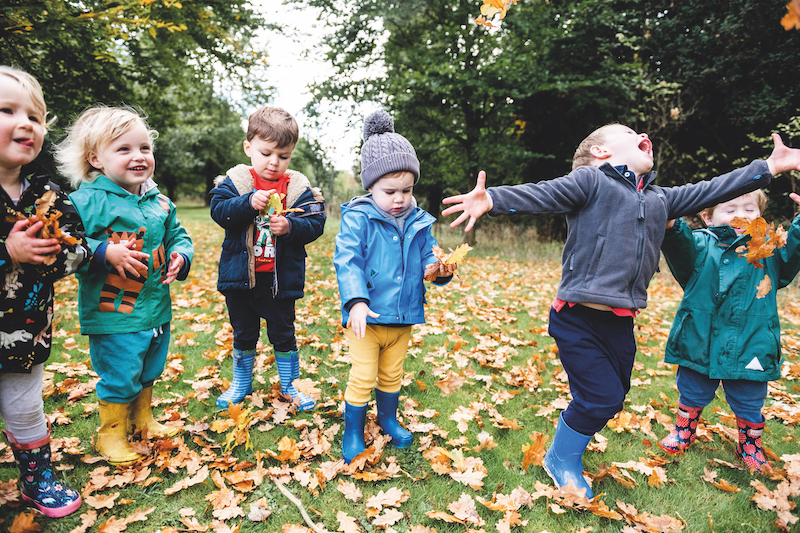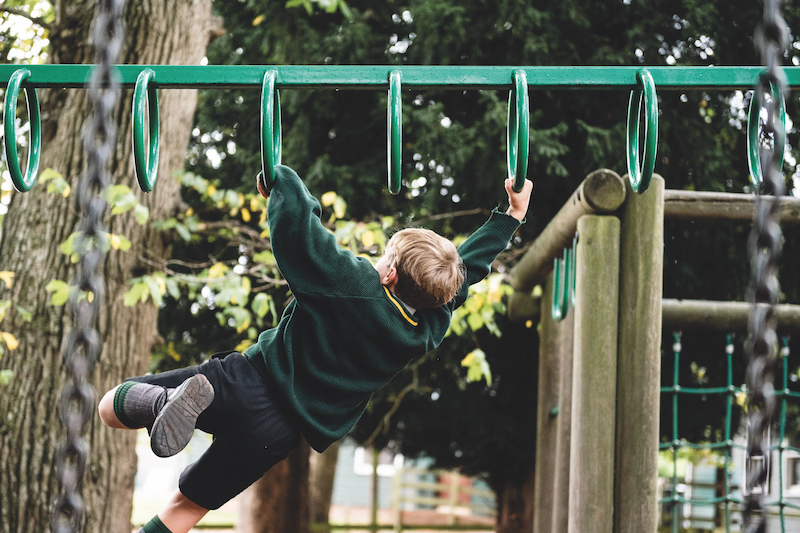Let them be little: in celebration of cognitive education practice
Posted on 16th May 2023 in School News, Early Years, Prep Schools Guide
Mr Brendan Brady, Headmaster at Moor Park School, considers why cognitive learning is essential in the early years.
According to a 2011 study in Transactions of the American Clinical and Climatological Association, knowledge is set to double every 73 days.
“It is estimated that the doubling time of medical knowledge in 1950 was 50 years; in 1980, 7 years; and in 2010, 3.5 years. In 2023 it is projected to be 0.2 years—just 73 days. Students who began medical school in the autumn of 2015 will experience approximately three doublings in knowledge by the time they complete the minimum length of training (7 years) needed to practise medicine. Students who graduate in 2023 will experience four doublings in knowledge. What was learned in the first 3 years of medical school will be just 6% of what is known at the end of the decade from 2010 to 2020.”
Here we are in 2023 and, mostly, children are still funnelled into schools to sit in rows – occasionally groups are allowed – their time managed by bells and their knowledge regurgitated in timed sessions. They are fed predetermined, standardised content (someone’s curriculum), with each child being assessed on the same measure. The fable of different animals and their strengths has no more relevance than in school settings: fish or leopard, they must all climb trees!
Politicians treat education as a convenient football, kicking it about to suit election whims (Maths to 18?). Teachers complain when a curriculum is changed every five years. Parents want the school experience to be the one they enjoyed (or not) decades ago. EdTech innovators see schools as a “golden goose” and push products that are budget-breakers, but likely obsolete before the next audit cycle, if not next month. Classrooms, school dumps and maintenance rooms are all evidence of fads past. All in all, nothing changes, and when it does, the changes may not be enduring.
In amongst all of this, schools taking the education of children seriously need to consider:
- How we equip our children to stride into their future world competent to manage and embrace change and diversity.
- How we allow them to explore possibility and solve problems.
- How we prepare them for a future that is too disruptive to fathom.
In a world that is arguably more consciously aware but less anchored, where ethics are personalised, and codes of common practice are contested, where facts are debatable depending on your perspective and where communities and connections are virtual as much as actual, parents are not sure whether to be mindful and present, or ‘future proofed’.
We must embrace, with all our might, cognitive education practice.
Cognition is adaptive and changeable (Feuerstein, 2005). Cognitive strategies will withstand escalating knowledge and allow us to solve unpredictable problems. Developed cognition enables assessment of perception and guards against prejudice. It upholds ethics and the respect of one person for another. Indeed, metacognition is key to success in an adaptable, rapidly changing world.
By ordering thoughts, individuals and communities make sense of what is before them and integrate what comes their way. These concepts are more than an idea or trend, cognitive development is about a process of becoming – each person on their journey, each school on its mission. It is an ethos, a culture, a belief, a pedagogy. Categorise it as you like.
Reuven Feuerstein calls it ‘human learning’. Schools, and the parents who partner with them, should gear everything towards developing the learner and his or her cognitive profile actively and intentionally.

Cognitive education begins with space and freedom to play, necessary requirements in a child’s early development. The right brain develops first, by the time a child is about three or four years of age. The left brain isn’t fully developed until children are approximately seven years old. The left brain’s purpose is logic. The right brain prefers creativity, empathy, and imagination. The left brain is interested in product, the right brain in process.
Vitally, the right brain connects us to our boundless sense of being. Being is primary; we are, after all, human beings, not human doings. Young children are quite content being. Thus, play is crucial in early learning and development, and why we must provide space and time for play, where children can just be.
Life is not so much about the product the left brain excels in; it is more about connecting with those you love, and those around you. It is vital that schools are careful with academic agendas in the early years – and in the later years. We must be as aware of who children are becoming and what they feel in their growing as we are of how much they have accomplished (process versus product) at school.
Children must be allowed to live in this natural, creative state of play for as long as possible. A healthy right brain allows better use of left-brain tools, and in so doing, to truly develop cognitive thought and contribute to a better world.
This is neither a radical nor alternative thought. Cognitive psychologists have been showing us how for more than a century.
Some teachers and schools and even (dare I say it) politicians ‘get it’. Some don’t. Many just won’t because it doesn’t suit their agenda, explicit or hidden. However, in this system called schooling if we really want to educate, we have a responsibility to develop cognitively healthy and aware young people.
Schools must apply best practice rather than worry about exam results and scholarships. Schools should be using evidence-based learning and teaching, to be able to show meaningful progress. Schools must question the curriculum agenda. In the independent sector we have the freedom to do so. The freedom to prepare children for a future of possibility. This is about our children and our (their) future – surely we want it to be as bright as possible?
This article appears in the 2023 edition of John Catt's Preparatory Schools, which you can view here: